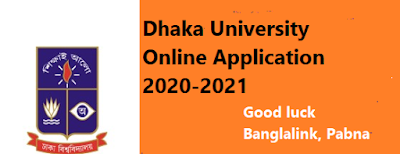শিক্ষা জীবনের একটি গুরুত্বপূর্ণ অংশ, এবং এটি আমাদের ভবিষ্যতের পথ খুলে দেয়। একটি ভাল শিক্ষা শুধুমাত্র আমাদের জ্ঞান বৃদ্ধি করে না, বরং আমাদের চরিত্র গঠনে, সমালোচনামূলক চিন্তাভাবনা বিকাশে এবং সমস্যা সমাধানেও সাহায্য করে।
কিন্তু, অনেক সময় আমরা শিক্ষার সঠিক পথে চলতে দ্বিধা বোধ করি। কিভাবে পড়াশোনা আরও কার্যকর করা যায়, কিভাবে ভালো ফল করা যায়, আর কিভাবে শেখাকে আনন্দময় করে তোলা যায় – এই প্রশ্নগুলো আমাদের মনে ঘুরপাক খায়।
লক্ষ্য লিখুন: আপনার লক্ষ্যগুলি কাগজে লিখে ফেলুন। এটি আপনার লক্ষ্যগুলির প্রতি মনোযোগ বাড়াতে সাহায্য করবে।ছোট অংশে ভাগ করুন: বড় লক্ষ্যগুলিকে ছোট ছোট অংশে ভাগ করুন। এতে কাজগুলি সহজ হবে এবং আপনি ধাপে ধাপে এগিয়ে যেতে পারবেন।সময়সীমা নির্ধারণ করুন: প্রতিটি ছোট অংশের জন্য একটি সময়সীমা নির্ধারণ করুন। যেমন, "এই সপ্তাহের মধ্যে প্রথম অধ্যায় শেষ করব।"পরিকল্পনা তৈরি করুন: লক্ষ্যে পৌঁছানোর জন্য একটি বিস্তারিত পরিকল্পনা তৈরি করুন। কখন পড়বেন, কি পড়বেন, কিভাবে পড়বেন - সব কিছু আগে থেকে ঠিক করে রাখুন।
সক্রিয় পঠন (Active Reading): শুধু বইয়ের পাতা উল্টে যাওয়া নয়, সক্রিয়ভাবে পড়ুন। গুরুত্বপূর্ণ অংশগুলি চিহ্নিত করুন, নোট নিন, প্রশ্ন করুন এবং উত্তর খোঁজার চেষ্টা করুন।পুনরাবৃত্তি (Spaced Repetition): একবারে সব কিছু না পড়ে, বিরতি দিয়ে দিয়ে পুনরাবৃত্তি করুন। এটি শেখা তথ্য মনে রাখতে সাহায্য করে।ফ্ল্যাশকার্ড ব্যবহার করুন (Flashcards): শব্দভাণ্ডার, সূত্র বা গুরুত্বপূর্ণ তথ্য মনে রাখার জন্য ফ্ল্যাশকার্ড ব্যবহার করুন।মাইন্ড ম্যাপ (Mind Maps): বিষয়বস্তুগুলিকে চিত্রের মাধ্যমে সাজিয়ে নিন। এটি জটিল বিষয় সহজে বুঝতে সাহায্য করে।পড়ার পরিবেশ তৈরি করুন: একটি শান্ত ও মনোযোগ-সহায়ক পরিবেশে পড়াশোনা করুন। যেখানে কোনো রকম ব্যাঘাত ঘটবে না।
নিয়মিত পড়ার সময় বের করুন: প্রতিদিন কিছুটা সময় বই পড়ার জন্য আলাদা করে রাখুন। দিনের একটি নির্দিষ্ট সময় বেছে নিতে পারেন, যেমন রাতে ঘুমানোর আগে অথবা সকালে ঘুম থেকে উঠে।আগ্রহের বিষয় নির্বাচন করুন: প্রথমে আপনার পছন্দের বিষয়গুলি দিয়ে শুরু করুন। গল্প, উপন্যাস, বিজ্ঞান, ইতিহাস - যা আপনার ভালো লাগে তাই পড়ুন।ধীরে ধীরে শুরু করুন: প্রথম দিকে অল্প সময় পড়ুন, ধীরে ধীরে সময় বাড়ান। একদিনেই অনেকক্ষণ পড়ার চেষ্টা না করাই ভালো।বইয়ের সংগ্রহ তৈরি করুন: নিজের একটি ছোট লাইব্রেরি তৈরি করুন। বিভিন্ন ধরনের বই সংগ্রহ করুন এবং পড়ার জন্য প্রস্তুত থাকুন।পড়ার ক্লাব বা গ্রুপে যোগ দিন: অন্যদের সাথে বই নিয়ে আলোচনা করলে পড়ার আগ্রহ আরও বাড়ে।
শিক্ষকের কাছে প্রশ্ন করুন: ক্লাসে শিক্ষকের কাছে দ্বিধা না করে প্রশ্ন করুন। আপনার প্রশ্ন হয়তো অনেকের মনে থাকা সংশয় দূর করতে সাহায্য করবে।বন্ধুদের সাথে আলোচনা করুন: বন্ধুদের সাথে পড়াশোনা নিয়ে আলোচনা করুন। একসাথে পড়লে অনেক অজানা প্রশ্নের উত্তর পাওয়া যায়।অনলাইন রিসোর্স ব্যবহার করুন: ইন্টারনেটে অসংখ্য শিক্ষামূলক ওয়েবসাইট, ভিডিও এবং প্ল্যাটফর্ম রয়েছে। সেখান থেকে আপনার প্রশ্নের উত্তর খুঁজে নিতে পারেন।লাইব্রেরি ও বইয়ের সাহায্য নিন: লাইব্রেরিতে বিভিন্ন ধরনের বই ও জার্নাল পাওয়া যায়। সেখানে আপনার প্রয়োজনীয় তথ্য খুঁজে পেতে পারেন।
অনলাইন লার্নিং প্ল্যাটফর্ম ব্যবহার করুন: বিভিন্ন অনলাইন লার্নিং প্ল্যাটফর্মে শিক্ষামূলক কোর্স ও রিসোর্স পাওয়া যায়। যেমন, খান একাডেমি, ইউটিউব এডুকেশন ইত্যাদি।শিক্ষামূলক অ্যাপ ব্যবহার করুন: অনেক শিক্ষামূলক অ্যাপ রয়েছে যা পড়াশোনাকে আরও সহজ ও মজাদার করে তোলে।তথ্য অনুসন্ধানে ইন্টারনেট ব্যবহার করুন: ইন্টারনেট তথ্য ভাণ্ডার। যেকোনো বিষয়ে তথ্য জানতে ইন্টারনেট ব্যবহার করতে পারেন।সামাজিক মাধ্যম পরিমিত ব্যবহার করুন: সামাজিক মাধ্যম শিক্ষার জন্য ব্যবহার করা গেলেও, এর অতিরিক্ত ব্যবহার মনোযোগ কমিয়ে দিতে পারে।
শিক্ষকের সাথে কথা বলুন: শিক্ষকের কাছে আপনার সমস্যার কথা খুলে বলুন। শিক্ষক আপনাকে সঠিক পথে চালনা করতে সাহায্য করতে পারেন।অভিভাবকের সাহায্য নিন: বাবা-মা বা অভিভাবকের সাথে আপনার পড়াশোনা নিয়ে আলোচনা করুন। তারা আপনাকে উৎসাহ দিতে ও সাহায্য করতে পারেন।কাউন্সিলরের পরামর্শ নিন: যদি মানসিক চাপ বা অন্য কোনো কারণে পড়াশোনায় মনোযোগ দিতে অসুবিধা হয়, তবে একজন কাউন্সিলরের পরামর্শ নিতে পারেন।সহপাঠীদের সাহায্য নিন: সহপাঠীদের সাথে মিলে গ্রুপ স্টাডি করতে পারেন। একে অপরের কাছ থেকে শিখতে ও সাহায্য নিতে পারেন।
নতুন দক্ষতা অর্জন করুন: ভাষা শিক্ষা, প্রোগ্রামিং, সঙ্গীত, খেলাধুলা - যেকোনো নতুন দক্ষতা শিখতে পারেন।সেমিনার ও ওয়ার্কশপে অংশগ্রহণ করুন: বিভিন্ন সেমিনার ও ওয়ার্কশপে অংশগ্রহণ করে নতুন জ্ঞান ও ধারণা অর্জন করতে পারেন।ভ্রমণ করুন: ভ্রমণ শিক্ষার একটি চমৎকার মাধ্যম। নতুন জায়গা, সংস্কৃতি ও মানুষের সাথে পরিচিত হলে জ্ঞান ও অভিজ্ঞতা বাড়ে।কৌতূহল বজায় রাখুন: চারপাশের সবকিছু সম্পর্কে কৌতূহলী হোন। নতুন কিছু জানার আগ্রহ সবসময় ধরে রাখুন।

